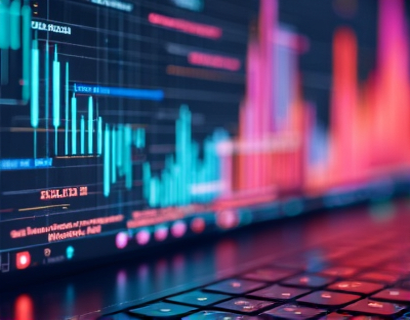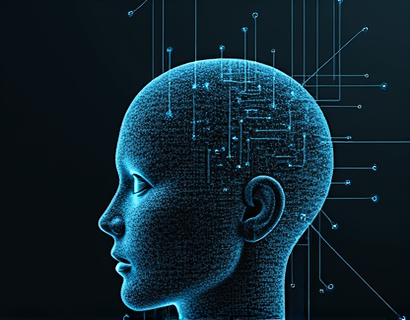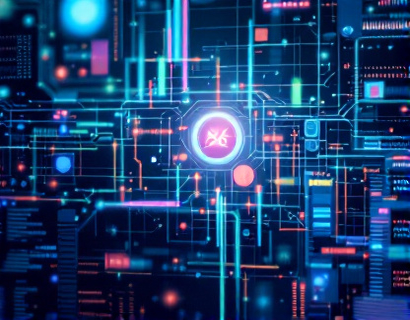Decentralized Organization Dynamics: Mastering the Software Stack for Universal Governance and Efficiency
In the rapidly evolving landscape of decentralized systems, the need for effective governance and operational efficiency has never been more critical. As organizations shift from traditional hierarchical structures to decentralized models, understanding the dynamics of decentralized organizations becomes essential. This guide delves into how advanced software can transform the creation of universal decentralized organizations, enhancing governance, collaboration, transparency, and efficiency for enthusiasts of decentralized systems.
The Rise of Decentralized Organizations
Decentralized organizations are gaining traction as they offer a more democratic approach to governance and decision-making. Unlike traditional organizations that rely on a top-down hierarchy, decentralized organizations distribute authority among participants, allowing for greater participation and innovation. This shift is driven by the need for transparency, accountability, and adaptability in an increasingly complex world.
Understanding the Software Stack
The software stack is a crucial component in building and managing decentralized organizations. It encompasses various technologies and tools that facilitate collaboration, governance, and operational efficiency. A well-designed software stack can empower organizations to operate seamlessly, ensuring that all members can contribute effectively.
Key Components of a Decentralized Software Stack
- Blockchain Technology: At the core of many decentralized organizations is blockchain technology, which provides a secure and transparent ledger for transactions and governance. It enables trustless interactions among participants, reducing the need for intermediaries.
- Smart Contracts: Smart contracts automate processes and enforce agreements without the need for a central authority. They are self-executing contracts with the terms of the agreement directly written into code, ensuring that all parties adhere to the agreed-upon conditions.
- Decentralized Applications (dApps): dApps are applications that run on a decentralized network, allowing users to interact directly without intermediaries. They enhance user experience and engagement by providing a more direct and transparent way to access services.
- Governance Frameworks: Effective governance frameworks are essential for decentralized organizations. These frameworks define how decisions are made, how power is distributed, and how conflicts are resolved, ensuring that all members have a voice in the organization.
- Collaboration Tools: Tools that facilitate communication and collaboration among members are vital for decentralized organizations. These tools can include messaging platforms, project management software, and file-sharing services that support real-time collaboration.
- Identity Management Solutions: Decentralized identity management solutions help verify the identity of participants while maintaining privacy. These solutions are crucial for ensuring that only authorized individuals can participate in governance and decision-making processes.
Enhancing Governance in Decentralized Organizations
Governance is a critical aspect of decentralized organizations. It determines how decisions are made, how resources are allocated, and how conflicts are resolved. Advanced software solutions can enhance governance in several ways:
1. Transparent Decision-Making
Transparency is a cornerstone of decentralized governance. By utilizing blockchain technology, organizations can create a transparent record of all decisions and actions taken. This transparency fosters trust among participants and ensures accountability.
2. Inclusive Participation
Decentralized governance allows for inclusive participation from all members. Software tools can facilitate voting mechanisms, enabling members to express their opinions and vote on key decisions. This inclusivity empowers individuals and encourages diverse perspectives.
3. Adaptive Governance Models
Decentralized organizations can adopt adaptive governance models that evolve based on the needs of the community. Software solutions can provide analytics and insights that help organizations assess their governance structures and make necessary adjustments.
Collaboration in Decentralized Systems
Collaboration is essential for the success of decentralized organizations. Advanced software can enhance collaboration in several ways:
1. Real-Time Communication
Effective communication is vital for collaboration. Decentralized organizations can leverage messaging platforms and video conferencing tools to facilitate real-time communication among members, regardless of their geographical location.
2. Project Management Tools
Project management software can help decentralized teams organize tasks, set deadlines, and track progress. These tools ensure that everyone is aligned and working towards common goals, enhancing overall efficiency.
3. Knowledge Sharing
Decentralized organizations thrive on knowledge sharing. Collaborative platforms can enable members to share insights, resources, and best practices, fostering a culture of continuous learning and improvement.
Ensuring Transparency and Accountability
Transparency and accountability are fundamental principles of decentralized organizations. Advanced software solutions can help ensure these principles are upheld:
1. Immutable Records
Blockchain technology provides immutable records of all transactions and decisions made within the organization. This feature ensures that all actions are traceable and verifiable, promoting accountability among members.
2. Audit Trails
Software solutions can create audit trails that document every action taken within the organization. These trails provide a comprehensive overview of decision-making processes and resource allocation, allowing for easy audits and assessments.
3. Performance Metrics
Decentralized organizations can utilize software to track performance metrics and key performance indicators (KPIs). This data-driven approach enables organizations to assess their effectiveness and make informed decisions for improvement.
Achieving Operational Efficiency
Operational efficiency is crucial for the sustainability of decentralized organizations. Advanced software can streamline processes and enhance productivity:
1. Automation of Processes
Automation is a key benefit of advanced software solutions. By automating repetitive tasks, organizations can free up valuable time and resources, allowing members to focus on more strategic initiatives.
2. Resource Allocation
Software tools can assist in optimizing resource allocation by providing insights into resource utilization and availability. This optimization ensures that resources are used effectively and efficiently.
3. Scalability
Decentralized organizations must be able to scale their operations as they grow. Advanced software solutions can provide the necessary infrastructure to support scalability, ensuring that organizations can adapt to changing demands.
Challenges in Decentralized Organization Dynamics
While decentralized organizations offer numerous benefits, they also face unique challenges that must be addressed:
1. Coordination Complexity
Coordinating activities among a diverse group of participants can be complex. Advanced software solutions can help streamline coordination by providing clear communication channels and project management tools.
2. Security Concerns
Decentralized organizations must prioritize security to protect sensitive information and assets. Implementing robust security measures, such as encryption and multi-factor authentication, is essential to mitigate risks.
3. Governance Conflicts
Conflicts may arise in decentralized governance due to differing opinions and interests. Establishing clear governance frameworks and conflict resolution mechanisms can help address these challenges.
The Future of Decentralized Organizations
The future of decentralized organizations is promising, with advancements in technology paving the way for more efficient and effective governance models. As software solutions continue to evolve, organizations will have access to tools that enhance collaboration, transparency, and operational efficiency.
1. Integration of Artificial Intelligence
Artificial intelligence (AI) has the potential to revolutionize decentralized organizations by providing insights and automating decision-making processes. AI can analyze vast amounts of data to identify trends and make recommendations, enhancing governance and operational efficiency.
2. Enhanced User Experience
As software solutions become more user-friendly, decentralized organizations will benefit from improved user experiences. Intuitive interfaces and seamless integrations will encourage participation and engagement among members.
3. Global Collaboration
The decentralized nature of these organizations allows for global collaboration, breaking down geographical barriers. Advanced software solutions will facilitate cross-border collaboration, enabling diverse teams to work together effectively.
Conclusion
Mastering the software stack for universal governance and efficiency is essential for the success of decentralized organizations. By leveraging advanced software solutions, organizations can enhance governance, collaboration, transparency, and operational efficiency. As the landscape of decentralized systems continues to evolve, embracing these technologies will empower organizations to thrive in a decentralized future.










































